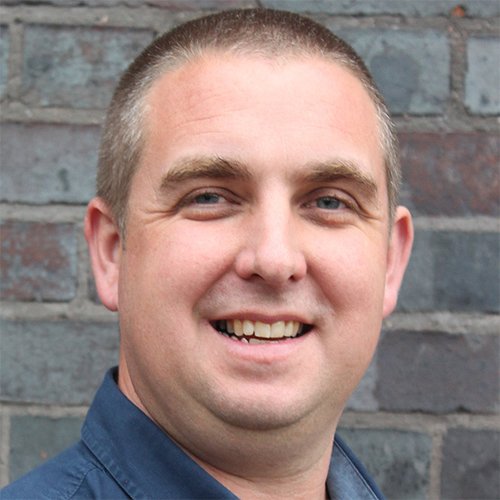EDI & LGBTQ+ why it’s more than just letters!
30 June 2023
30 June 2023
 Revd James Pritchard, Coordinating Chaplain at Keele University, shares this blog regarding the important role of university chaplaincy in the LGBTQ+ community.
Revd James Pritchard, Coordinating Chaplain at Keele University, shares this blog regarding the important role of university chaplaincy in the LGBTQ+ community.
At Keele Chapel we have long sought to be an affirming and inclusive Christian community, and in recent years it has become a central part of our identity. We proudly display signs to make this clear, stating: ‘We believe all people are made in the image and likeness of God. We celebrate our diversity and seek not to discriminate on the basis of gender, mental health, physical ability, race, sexuality or any other such distinctions.’
We are honest that our community includes a wide range of theological, ethical and moral understandings, beliefs and practices but also that we are committed to belonging together and loving each other, even as we live with the tension of these differences. This approach for us is an outworking of what Paul talks about in Ephesians: “Live the kind of life which proves that God has called you. Be humble and gentle in every way. Be patient with each other and lovingly accept each other. Through the peace that ties you together, do your best to maintain the unity that the Spirit gives. There is one body and one Spirit. In the same way you were called to share one hope.” Ephesians 4:1-4
What we are also clear about is that we are called to be a safe place for those who have at times been hurt or damaged by the Church, and a safe place for those who identify as LGBTQ+. I asked a student to read one Sunday and she was nearly in tears, saying she would never have been allowed to do so in her previous church. She recently reminded me of the hurt often inflicted by the Church, and the shocking truth that you are more likely to attempt suicide if you are a Queer Christian than if you are Queer and have never entered a church. She said: ‘The church is supposed to be a place of welcome, love, community and aid, not somewhere that destroys a person so much that they cannot see a future.’
In a university setting we encounter many young adults whose world view and societal understanding can be very different than those of many in our church. As a university chaplain I have spent much of my ministry engaged beyond the bounds of the Church seeking to reflect Christ in a secular context.
It is at times a challenge but one that has led to many interesting conversations, not least around equality and diversity - people have sometimes been surprised to find me speaking out in support of the LGBTQ community with some expecting me to be providing a block not a steppingstone to inclusivity. To live out my faith and practically declare the love of God leads me to work for justice and liberation, and Equality Diversity and Inclusion is a great way of being involved in that important missional activity.
The rate of change in society and understanding around things like gender identity and even sexuality can make it hard for some to know how to engage positively, but as one of our students says: ‘Last time I checked, Jesus didn’t add caveats when he told us to ‘Love each other as I have loved you’. We don’t have to understand, or even agree, to love one another - it's our fundamental calling and part of what we are striving to do as a Church in living with contradictory convictions.
Over the last few years, there has been an increase in Christian students who may have a more evangelical theological outlook for whom LGBTQ+ inclusivity is fundamental and indeed something they actively look for in seeking out a church. The false divide between more conservative and liberal theological perspectives on these areas is far less pronounced now than it ever was before. Among many young adults this is something they see no conflict between.
As a straight cisgender ally, I think LGBTQ+ inclusion in the church is very important. As well as being a moral issue in which we have the opportunity to do what, I believe, is right I think it really is an issue in terms of our Christian witness to the world. When we see the harm done by the church to many LGBTQ+ people, and this can often be indirect, I think it’s our duty to not perpetuate that, but rather work towards the opposite.’
If, as I hope, churches are wanting to take seriously their witness amongst younger generations we need to take inclusivity seriously and work for justice and inclusion. (One way in which you can do this is by signing up to be an Honest Church organised by SCM Student Christian movement).
My time at Keele is drawing towards its end and it will be a great sadness as I will leave behind such a rich, diverse Christian community one I’ve been proud to be a part of and where in our diversity I have learnt more of God.